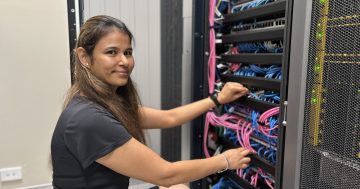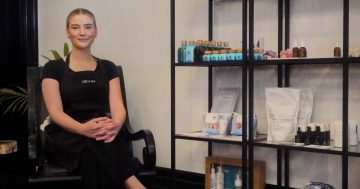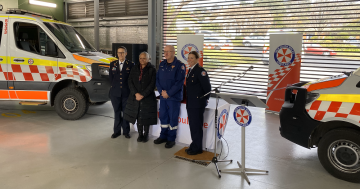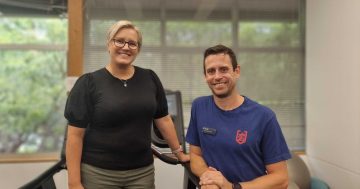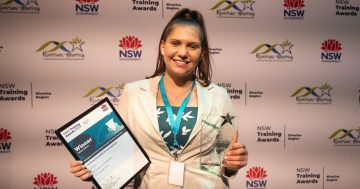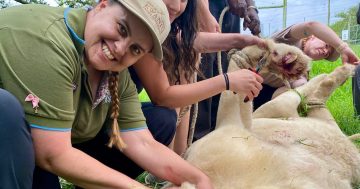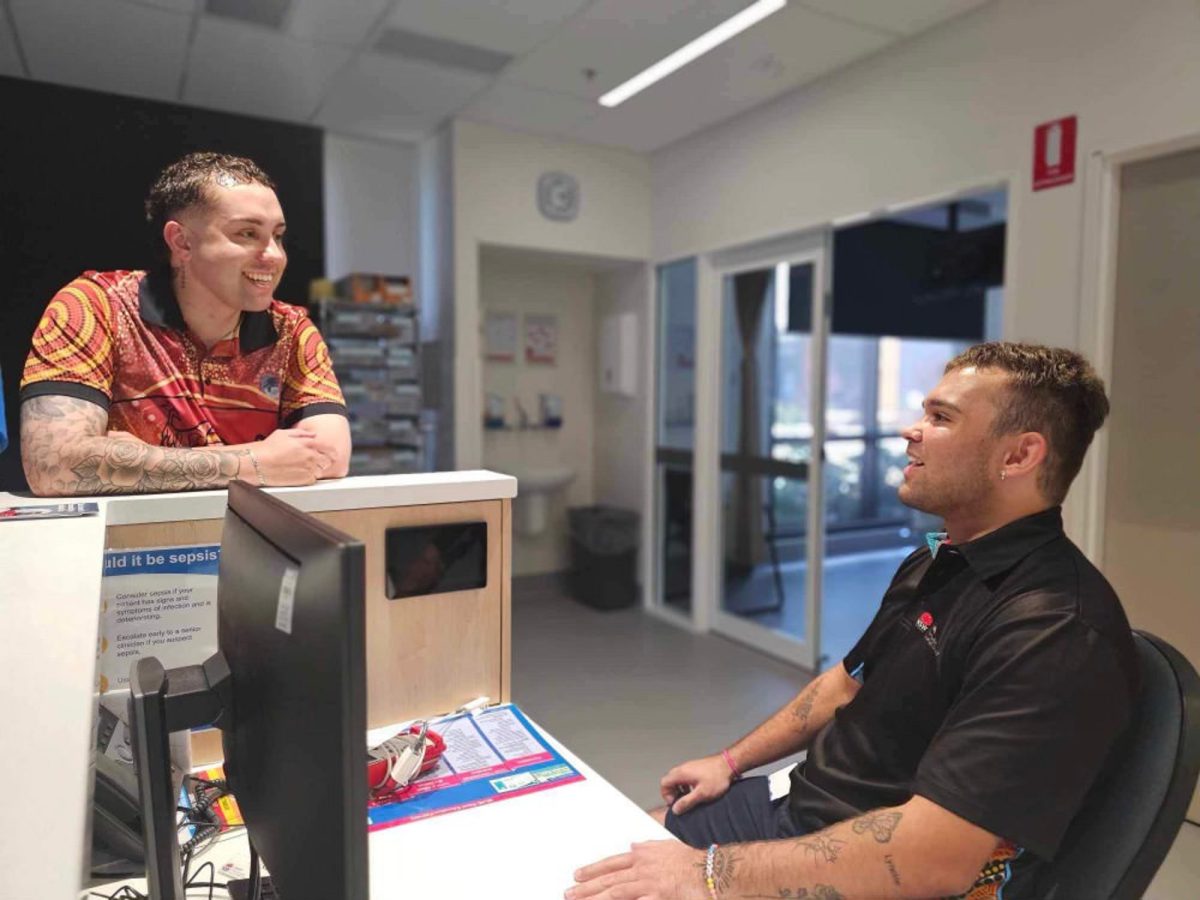
TAFE NSW Tumut graduate and Tumut Hospital Aboriginal Health Worker Tana Scott with brother and Tumut Hospital Aboriginal Mental Health trainee Taine Scott. Photo: TAFE NSW.
A Tumut man has joined one of the region’s most in-demand workforces, helping shape health outcomes for his local Aboriginal community.
A proud Wiradjuri/Ngunnawal man, Tana Scott was unsure of his future career path before a snap decision in Year 12 at Tumut High changed the course of his professional life.
The 19-year-old enrolled in a school-based traineeship as an allied health assistant – a fast-growing profession in the booming healthcare sector. The role offers support to the nearly 200,000 allied health professionals nationwide, in areas including physiotherapy, optometry, speech pathology, occupational therapy and more.
Tana is a fully qualified allied health assistant and working as an Aboriginal health worker, specialising in physiotherapy at Tumut Hospital after completing two TAFE NSW courses.
He acts in a support role for the on-duty physiotherapist, coordinating patient care by organising appointments, coordinating health and welfare programs and completing administrative tasks.
The allied health assistant has urged other young people to consider a career in the in-demand field as it offers a rare mix of job security and satisfaction.
“It’s so rewarding to be able to help my mob and be a positive figure in their lives,” Tana said.
“Watching them recover and knowing you played a part in helping them overcome their health challenges is an amazing feeling.”
Tana is passionate about being a role model for young Aboriginal males and would love the opportunity to chat with them about his experiences.
When Tana was enrolled in the school-based traineeship he split his time between working at Tumut Hospital, studying at school and completing a Certificate III and Certificate IV in Allied Health Assistance at TAFE NSW.
He said the practical, hands-on nature of his TAFE NSW course meant he could immediately have an impact on the job.
“My TAFE NSW teachers were so experienced and supportive, and we did so many simulations and so much practical learning during the course,” Tana said.
TAFE NSW Head Teacher of Health, Wellbeing and Community Services Owen Kerr said the course offered in-demand skills to students to pivot their careers and contribute to the health of the local community.
“Allied health assistance is a rapidly growing field of healthcare and there are so many opportunities for TAFE NSW graduates,” Mr Kerr said.
“It covers so many specialisations and the students have an advantage because they already work in a clinical or semi-clinical setting.
“It’s a great example of how TAFE NSW can tailor training to suit industry and organisational needs.”
The course runs for 12 months and offers a mix of face-to-face and online learning, with students required to complete 120 hours of work placement.







